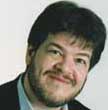
Jeff Jacoby
Election Day, RIP?
http://www.NewsAndOpinion.com | Once, Election Day was the most significant communal occasion in American life.
On the Tuesday after the first Monday in November, Americans came together to choose their leaders and reaffirm their democracy. It was, in George Will's words, "the central episode of our civic liturgy" - a day not only of practical decision-making but of important symbolic meaning. Leaving their homes and offices, mingling at a public polling place, waiting together in line to cast their votes, Americans were reminded that, whatever their differences, they were all equal members of a political community with an equal say in its governance.
Election Day still appears on the calendar. But its importance is steadily diminishing. Consider three news items from the week gone by:
The Chronicle of Higher Education and Harvard's Institute of Politics released a study showing that 33 percent of US colleges and universities are not complying with a federal law that requires them to provide students with voter-registration forms. Those schools, scolded David King, the institute's director of research, "are . . . clearly failing their students, the communities in which they live, and . . . the next generation of political voters."
The Washington Post reported in a front-page story that "many people with advanced dementia appear to be voting in elections — including through absentee ballot." Studies in Pennsylvania and Rhode Island have shown that patients at dementia clinics are actually more likely to vote than the general public.
The Associated Press reported that 32 states now permit some form of early voting, either by making mail-in absentee ballots available to any voter or by opening polling stations weeks before Election Day, or both. The story quoted Meredith Imwalle of the National Association of Secretaries of State: "We're in 2004, and both parents are working. Kids are in school, with 500 activities a week. People's lives are such that they're not able to come to a screeching halt and march down to their local elementary school on Election Day."
What links these stories is the fetishization of voting - the contemporary belief that nothing is more important to our civic health than increasing voter turnout. In recent years, lawmakers have gone to great lengths to make voting as convenient and effortless as possible. The voting age was lowered to 18. Universities were made responsible for their students' registration as voters. "Motor Voter" — which allows anyone to register by mail, or when renewing a driver's license or applying for welfare — became the law of the land. Now many states are on the point of abandoning Election Day itself.
Already in much of the country, voters no longer have to wait until Election Day to vote. Thirty-one states permit voters to cast their ballots early at designated polling sites. In Iowa, voting begins this Thursday. The polls open in Arizona next week.
In addition, 26 states now permit no-excuse absentee voting, which allows any resident to request an absentee ballot for any reason at all. And in Oregon, the voting booth has been done away with altogether: Oregon elections are now conducted entirely by mail.
All of which means that "Election Day" has been reduced to little more than a figure of speech. The Tuesday after the first Monday in November is no longer the day when Americans assemble to make important political choices. Now it is merely the day when the voting ends. "If you wait until Election Day," Arizona Governor Janet Napolitano told The Washington Post, "you've missed the first half of the vote." Election Day officially occurs on Nov. 2 this year, but as much as 30 percent of the turnout will have occurred before then.
This is not a good thing. For starters, absentee and early voting results in millions of ballots being cast before the campaign is over, and as journalist John Fund points out in "Stealing Elections," a new book about America's chaotic voting system, late-breaking news can have a dramatic impact on an election's outcome. Four years ago, for example, Al Gore enjoyed a last-minute surge following news of George W. Bush's 1976 arrest for drunk driving. "If more people had cast ballots on Election Day, rather than earlier," Fund notes, "Gore would probably be president today."
The proliferation of absentee voting also means that the secret ballot is increasingly a thing of the past. Dirty tricks are easier to arrange than ever. How many of those patients with dementia The Washington Post reported on last week — the ones who voted at such high rates — received "help" with their ballots from partisan operatives?
These drawbacks might be a price worth paying if absentee and early voting really did encourage more citizens to vote. It doesn't. According to Curtis Gans, director of the Committee for the Study of the American Electorate, the data are "unequivocal" in showing that easy absentee voting does not boost turnout. More or less the only people it really helps, he told Fund, are those who would be voting anyway — ``often lazy middle-class and upper-middle-class people.''
The unpopular truth is that it isn't lack of time that keeps so many Americans from voting. It's lack of interest. Citizens who care about elections will always find a way to vote. Citizens who don't care aren't likely to vote no matter how much they are coaxed and begged to do so. It's time to stop the coaxing and begging, and to restore to Election Day the significance it used to have.
Like this writer's work? Why not sign-up for the daily JWR update. It's free. Just click here.
Jeff Jacoby is a Boston Globe columnist. Comment by clicking here.


